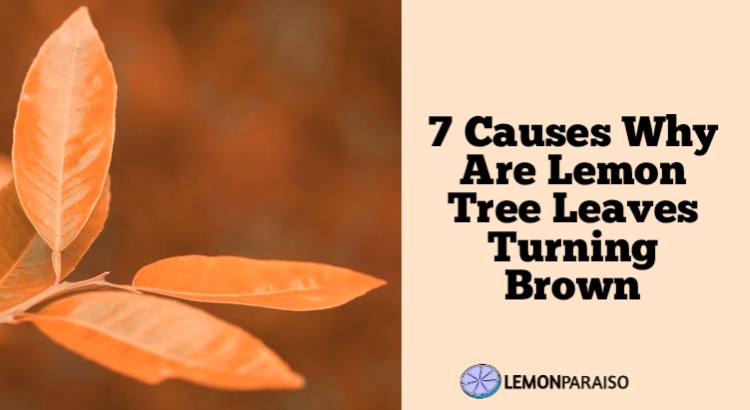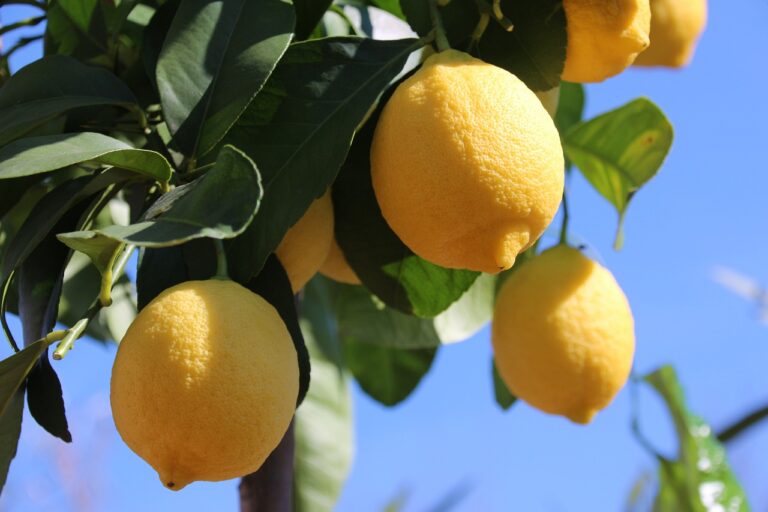Black Bugs On Lemon Tree
Lemon trees (Citrus limon) are beautiful and fragrant fruit-bearing plants that add a touch of freshness and zest to any garden. However, these citrus trees can become susceptible to various pests, which may hinder their growth, affect their fruit production, or even compromise their overall health. One common problem that lemon tree growers may face is the presence of black bugs on their lemon trees.
What Are The Black Bugs On My Lemon Tree?
The black bugs that you may find on your lemon tree could be one of several species, including aphids, scale insects, or citrus blackflies. Each of these pests has distinct physical characteristics and behaviors, but they all share an affinity for citrus plants.
They usually feed on the sap of the tree, causing damage to the leaves, branches, and fruit. It’s crucial to identify the specific type of bug infesting your tree to implement the most effective control measures and maintain your tree’s health.
What Kind Of Black Bugs Are On My Lemon Tree?
Several types of black bugs may infest your lemon tree, including black citrus aphids, scale insects, and citrus blackflies.
Black citrus aphids are small, pear-shaped insects that congregate on the underside of leaves, while scale insects are immobile, disc-shaped pests that attach themselves to the tree’s branches and leaves.
Citrus blackflies are tiny, black, and fly-like, and they lay their eggs in a characteristic crescent shape on the underside of leaves.
What Are The Signs Of Black Bug Damage On Lemon Trees?
The signs of black bug damage on lemon trees may vary depending on the type of pest but can include curling, yellowing, or distortion of leaves, stunted growth, and reduced fruit production. You may also observe sooty mold growth on leaves and fruit due to honeydew excretion.
In severe cases, twig dieback, premature fruit drop, and even tree death can occur. It’s essential to monitor your lemon tree closely and take action at the first sign of black bug infestation.
Are Black Bugs Harmful To Lemon Trees?
Yes, black bugs on lemon trees can be harmful, as they feed on the sap of the plant, depriving it of essential nutrients. This can lead to stunted growth, yellowing and curling of leaves, and reduced fruit yield.
In severe infestations, black bugs can cause twig dieback, premature fruit drop, and even the death of the tree. Additionally, some black bugs excrete a sticky substance called honeydew, which encourages the growth of sooty mold, further harming the tree.
Do Black Bugs On Lemon Trees Affect The Fruit?
Yes, black bugs on lemon trees can negatively impact fruit development and quality. As these pests feed on the sap, they can weaken the tree, leading to reduced fruit yield and premature fruit drop.
In some cases, the feeding activity of black bugs may cause fruit deformation or discoloration. Additionally, the honeydew excreted by some black bugs encourages the growth of sooty mold, which can cover the fruit surface, making it unattractive and affecting its taste.
Can Black Bugs On Lemon Trees Spread To Other Plants?
Black bugs on lemon trees can indeed spread to other plants, particularly other citrus varieties or closely related species. Some black bugs, such as aphids, can be dispersed by wind, or they may hitch a ride on birds, insects, or gardening tools.
To prevent the spread of black bugs, it’s essential to implement proper sanitation practices, such as cleaning tools, removing plant debris, and maintaining a healthy distance between plants to reduce the chances of cross-infestation.
How Do I Get Rid Of Black Bugs On My Lemon Tree?
Preventing black bug infestations on your lemon tree involves consistent monitoring, proper tree care, and cultural practices. Regularly inspect your tree for signs of black bugs, ensuring early detection and intervention.
Maintain good tree health through proper watering, fertilization, and pruning, as a healthy tree is more resistant to pests. Eliminate potential hiding spots for black bugs by removing dead leaves, debris, and weeds around the tree. Lastly, avoid excessive use of nitrogen-rich fertilizers, as they promote tender new growth that attracts these pests.
Can Black Bugs On Lemon Trees Be Controlled Naturally?
Yes, black bugs on lemon trees can be controlled naturally by employing several eco-friendly and sustainable methods. These include introducing beneficial insects such as ladybugs, lacewings, and parasitic wasps, which are natural predators of black bugs.
Additionally, you can use insecticidal soaps or horticultural oils, which are less toxic to the environment and other organisms. Regular pruning and proper sanitation practices can also help keep these pests under control.
How Do I Prevent Black Bugs From Infesting My Lemon Tree?
Preventing black bug infestations on your lemon tree involves consistent monitoring, proper tree care, and cultural practices. Regularly inspect your tree for signs of black bugs, ensuring early detection and intervention.
Maintain good tree health through proper watering, fertilization, and pruning, as a healthy tree is more resistant to pests. Eliminate potential hiding spots for black bugs by removing dead leaves, debris, and weeds around the tree. Lastly, avoid excessive use of nitrogen-rich fertilizers, as they promote tender new growth that attracts these pests.
How Often Should I Check My Lemon Tree For Black Bugs?
It’s advisable to check your lemon tree for black bugs at least once every one to two weeks, particularly during the growing season when pests are most active. Regular inspections allow for early detection and prompt intervention, minimizing potential damage to your tree.
Pay special attention to the underside of leaves, branches, and areas with new growth, as these are common spots for black bugs to congregate. With consistent monitoring and proper tree care, you can maintain a healthy, fruitful lemon tree free from black bug infestations.




